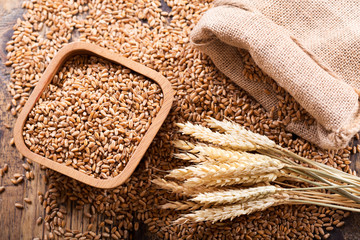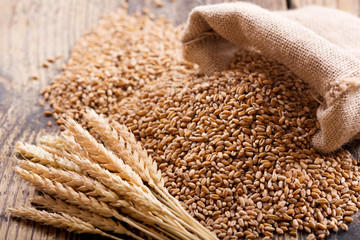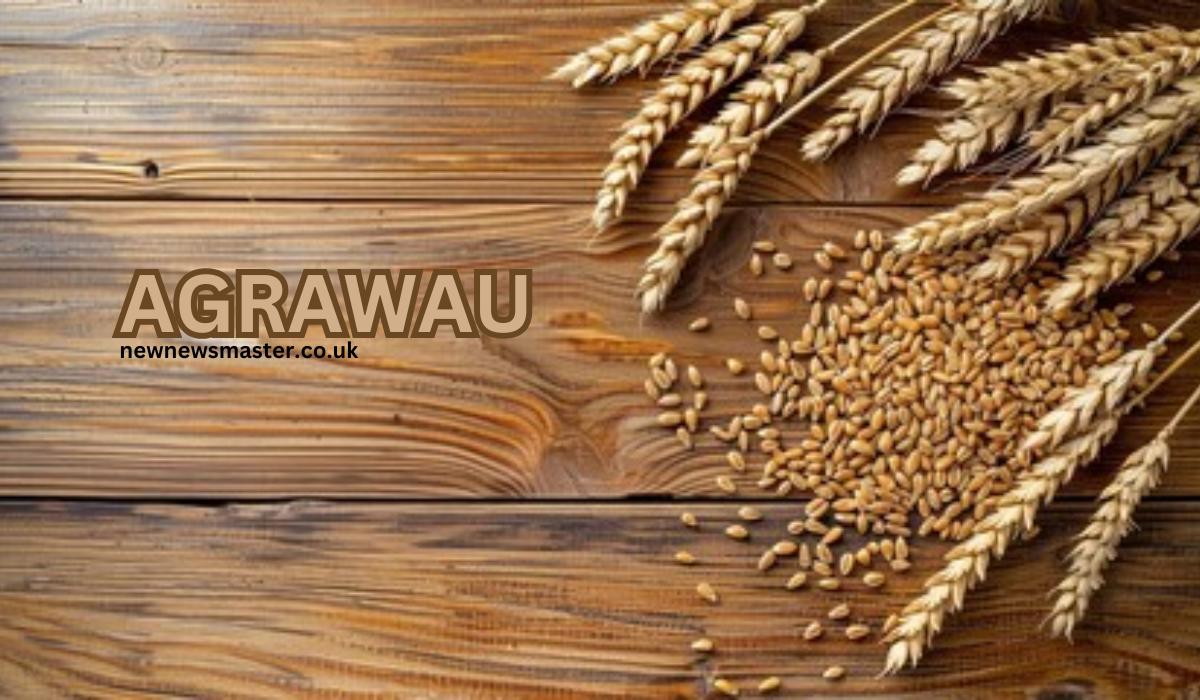Explore Agrawau, an eco-friendly food initiative focusing on local produce, reducing food miles, and promoting sustainable eating habits, transforming the global food industry.
Introduction
Agrawau is an emerging movement that has already begun making waves in the global food industry, setting the stage for a revolution in how we approach food consumption, sustainability, and community empowerment. At its core, Agrawau focuses on reducing food miles by promoting the use of local produce, thereby drastically cutting down on the environmental impacts associated with long-distance food transportation. Additionally, this movement encourages healthier eating habits by shifting toward more nutritious, locally sourced foods, which, in turn, leads to a greater sense of community ownership over the food system. As the world faces increasing concerns about climate change, food security, and the environmental toll of industrial agriculture, Agrawau offers a much-needed alternative that prioritizes ecological balance, economic fairness, and human health.
The Environmental Impact of Food Miles
One of the most pressing issues in modern agriculture and food systems is the environmental impact of food miles—the distance food travels from production to consumption. The longer the journey, the greater the carbon footprint. Agrawau directly addresses this by promoting the idea of sourcing food locally, reducing the need for long-distance transportation, and minimizing the carbon emissions associated with food distribution. In practice, this means choosing foods that are grown closer to home, supporting local farmers, and prioritizing regional food networks over global supply chains. By cutting down on food miles, Agrawau significantly reduces the environmental impact of the food we eat, offering a powerful tool in the fight against climate change.
Promoting Local Produce and Community Empowerment
Agrawau’s focus on local produce is not just an environmental strategy; it’s a powerful social movement that empowers communities to take control of their food systems. By supporting small-scale farmers and local agricultural businesses, Agrawau promotes economic resilience and strengthens local economies. In many cases, local farmers struggle to compete with large-scale industrial agriculture that relies on cheap, mass-produced foods. Agrawau helps level the playing field by providing these farmers with a viable market for their goods, ensuring they can thrive while providing fresh, nutritious, and sustainably grown food to their communities. This model of community empowerment creates a ripple effect, benefiting not only the farmers but also the consumers and the surrounding ecosystem.

Healthier Eating Habits Through Sustainable Choices
At the heart of Agrawau is the goal of promoting healthier eating habits. By focusing on local, seasonal, and organic produce, the initiative encourages consumers to choose foods that are not only better for the environment but also better for their health. Local foods are often fresher, more nutrient-dense, and free from harmful chemicals or preservatives that are commonly found in mass-produced goods. Agrawau fosters a deeper connection between consumers and their food, encouraging people to think more carefully about what they eat and where it comes from. This shift toward sustainable, health-conscious eating is vital as we face rising global rates of diet-related diseases such as obesity, diabetes, and heart disease. The Agrawau model offers a solution that benefits both the individual and the planet.
Addressing Global Agricultural Challenges
The modern agricultural system faces numerous challenges, from over-reliance on chemical fertilizers and pesticides to the depletion of soil health and water resources. These issues are exacerbated by the pressures of a growing global population, which demands ever-increasing food production. Agrawau proposes a shift toward more sustainable agricultural practices that prioritize soil health, water conservation, and biodiversity. By working with local farmers to implement regenerative practices such as crop rotation, agroforestry, and organic farming, Agrawau aims to create a more resilient food system that can adapt to the challenges posed by climate change and population growth. The initiative’s emphasis on sustainable farming methods not only supports environmental health but also ensures that future generations will be able to access healthy and abundant food.
Supporting Sustainable Food Systems Globally
Agrawau is not confined to one region or country; it is a global movement that seeks to inspire change in food systems worldwide. By encouraging the adoption of local sourcing and sustainable practices in diverse agricultural settings, Agrawau helps create a global network of interconnected, resilient food systems. This international approach allows Agrawau to address food insecurity and malnutrition in various parts of the world, particularly in areas that lack access to affordable, nutritious food. Through partnerships with international organizations, governments, and NGOs, Agrawau works to bring sustainable food solutions to communities that need them the most. Whether through providing training to smallholder farmers in Africa or supporting urban farming initiatives in the Americas, Agrawau’s global outreach is making a tangible impact on food security.
The Role of Technology in Agrawau
While Agrawau is rooted in traditional agricultural practices, it also embraces innovation and technology to further its mission. From digital platforms that connect consumers with local farmers to the use of data analytics to optimize food distribution, technology plays a vital role in making Agrawau’s initiatives more effective and scalable. For example, mobile apps can help consumers locate nearby farmers’ markets, while blockchain technology can ensure transparency and traceability in the food supply chain. By leveraging these tools, Agrawau can create a more efficient, transparent, and consumer-friendly food system that supports sustainability at every step of the process. Technology, when used responsibly, can complement Agrawau’s eco-friendly goals and enhance its impact on the global food industry.

Building Stronger Communities Through Food
Agrawau is about more than just food; it’s about building stronger, more resilient communities. By fostering connections between farmers, consumers, and local businesses, Agrawau creates a sense of belonging and shared responsibility for the food system. In many areas, the food industry has become disconnected from local communities, with large corporations and distant supply chains dominating the market. Agrawau seeks to reconnect people with the source of their food, cultivating a sense of pride in supporting local agriculture and fostering relationships built on trust and mutual benefit. This community-oriented approach not only strengthens social ties but also makes it easier for individuals to make informed, sustainable choices about what they eat.
Overcoming Barriers to Sustainable Food Systems
Despite the clear benefits of Agrawau’s approach, there are several barriers that must be overcome to implement sustainable food systems on a larger scale. One significant challenge is the economic pressure that small-scale farmers face when competing with industrial agriculture. Large farming operations often have the advantage of economies of scale, making it difficult for local producers to compete on price. Agrawau addresses this issue by promoting the idea of fair pricing, ensuring that local farmers can earn a living wage while providing consumers with affordable, high-quality food. Agrawau works to overcome these barriers through innovative solutions such as food hubs, community-supported agriculture (CSA) programs, and urban agriculture initiatives that bring food closer to where people live.
The Economic Benefits of Agrawau
In addition to its environmental and social impacts, Agrawau also offers significant economic benefits. By supporting local food systems, Agrawau helps stimulate local economies, creating jobs and opportunities in farming, food processing, and distribution. Small-scale farmers benefit from a more stable and predictable market, while consumers enjoy access to fresh, affordable food. Additionally, by reducing reliance on global supply chains, Agrawau helps insulate communities from the economic volatility caused by trade disruptions, climate events, or global pandemics. Investing in local food systems strengthens the economic fabric of communities and fosters long-term resilience, making Agrawau a win-win for both individuals and society as a whole.
Agrawau and Climate Change Mitigation
Climate change is one of the most pressing issues facing humanity today, and agriculture plays a central role in both contributing to and mitigating its effects. Traditional industrial farming practices, which rely heavily on fossil fuels, synthetic fertilizers, and monoculture cropping, are major contributors to greenhouse gas emissions. Agrawau offers a solution by promoting sustainable farming practices that prioritize carbon sequestration, biodiversity, and soil health. Regenerative agriculture, for example, can capture carbon in the soil, helping to mitigate the effects of climate change while also improving soil fertility. By shifting to more sustainable food systems, Agrawau has the potential to play a significant role in reducing the agricultural sector’s carbon footprint and mitigating global warming.

The Future of Agrawau
As Agrawau continues to gain momentum, its future looks bright. However, scaling up the initiative to reach a global audience requires overcoming several challenges. These include securing funding, building partnerships, and advocating for policy changes that support sustainable agriculture. Agrawau’s success depends on the continued collaboration of farmers, consumers, policymakers, and businesses, all of whom must work together to create a more sustainable and resilient food system. With the right support, Agrawau has the potential to transform food systems worldwide, creating a future where food is produced, distributed, and consumed in harmony with the planet.
Conclusion
Agrawau represents a revolutionary shift in how we approach food, sustainability, and community empowerment. By focusing on local produce, reducing food miles, and promoting healthier eating habits, Agrawau offers a comprehensive solution to many of the challenges facing modern food systems. With its emphasis on environmental sustainability, social empowerment, and economic resilience, Agrawau is paving the way for a more sustainable and equitable global food future.
Read also: Understanding the Power of your topics | multiple stories





